Op-Ed: Hypocrisy at its worst: SGA’s ‘Transparency’
Proposal submitted by SGA President Holechko on January 24 to the Constitutional Revisions Board outlining the removal of seven clauses of the constitution.
Budget transparency, and transparency more largely, loom large over the DePaul community. With calls for transparency regarding DePaul’s operational budget ringing out from students, faculty and staff alike, I want to dig deeper into one group, the DePaul Student Government Association (SGA), and see if its own transparency matches the ideals it calls for.
I started with one simple question: If SGA is so adamant in its call for transparency from the administration, how good is its own transparency?
The answer? Abysmal. And, unfortunately, it seems that this level of transparency has become the norm.
In its own constitution, SGA requires numerous levels of transparency: publishing its own operational budget, documents such as meeting minutes and committee reports, and the capstone of them all, organization-level transparency reports.
On each of these fronts, SGA has failed to deliver even the bare minimum of its required obligations.
When it comes to SGA’s current budget, information surrounding it can be found nowhere on SGA’s website, despite the fact that the SGA treasurer is required to post monthly budget updates. Unable to locate it, I went this past week directly to the SGA treasurer, Caroline Snyder, and requested a copy of the most recent SGA budget. Snyder directly told me that she did not think she was “at liberty to give it out.” Wait, what?
If this budget is already required to be posted on the SGA website monthly, then nothing should prevent her from supplying me or anyone else with the budget upon request. One would expect that current criticism of the university’s lack of budget transparency would make SGA extra careful to avoid being seen as similarly opaque with its own budget, but that has not been the case.
This year, for the first time, SGA has not even made detailed budget information available to its own members, neither approval of the budget at the beginning of the year nor formal reports since then. What is more, a proposal last quarter by Holechko — fortunately rejected by the SGA Constitutional Revisions Board — advocated completely gutting almost all remaining transparency requirements in the SGA Constitution, including requiring the SGA General Body to approve the budget, publishing the budget on SGA’s website and publishing committee reports. Is this anything more than an attempt to abandon, not just informally, but formally, the transparency mechanisms SGA has established? Holechko offensively suggests that SGA has not met these requirements in years, when in reality SGA met many of them as recently as last year, when Holechko was vice president. Does Holechko argue against transparency in bad faith, or does he simply have astonishingly poor memory of the GB meetings he himself ran only last year?
When it comes to the publication of its meeting minutes and committee reports, SGA has long dropped any pretense of compliance. The most recent meeting minutes published on the SGA website are from spring quarter 2021, and the most recent committee report is from late 2020. If a student wants to know what exactly SGA has been doing, they need to have access to SGA’s member-only Google Drive, because SGA’s public website certainly does not provide any more recent information.
Perhaps the student body could overlook these failings if SGA regularly published any sort of transparency reports, but last year Holechko successfully advocated that SGA revise its constitution to reduce the frequency of transparency reports from quarterly to annually, and even then, SGA has failed to actually externally publish any transparency reports since fall quarter 2020, two and a half years ago.
Further, while SGA at least produced and presented a transparency report to its own members during winter quarter 2022, SGA has not even bothered to produce this kind of report for its own internal consumption this academic year. This is nothing less than shamelessly drawing the curtains and restricting information to only SGA’s senior leadership.
While it is important to examine and reveal SGA’s transparency failures, it is more important to reject any excuses for these failings. Certainly, some may ask: What is the point of publishing this material, if few, if any students seem to access it? The answer is in the exception: The information is rarely needed, but when it is needed, the need is urgent. What does it say about an organization, whether SGA or DePaul’s administration, to ignore its responsibility to be transparent? For SGA, what does it say about the level of respect (or in this case, disrespect) that the organization has for the students it ostensibly represents?
I pose these questions rhetorically, but it is worth answering them. Shamelessly flouting transparency requirements only further cements SGA’s well-earned current reputation of laziness and general apathy, of being as useful as a fax machine in 2023, of being unable to take any action without arcane and inscrutable processes, and of being altogether lackluster even at its heights. As to the respect SGA holds for students, how much lower can it go?
SGA seems to care about students when elections roll around, with promises of transparency and grand initiatives predictably plastered across each candidates’ campaign platforms. Yet, the outcomes of the past several elections have only served to maintain SGA’s status quo and to eventually make what little SGA accomplishes even more hidden from the public.
Above all, SGA’s stunning lack of transparency poses a fundamental question: how much does SGA actually care about students? It does not require superhuman effort to publish the budget or meeting minutes, or produce an annual transparency report, but what it does take is dedication to service of others, not the attitude of self-service that has increasingly plagued SGA the past few years. It requires SGA to be able to accurately see itself from the perspective of students, to be able to understand how these students feel knowing that their representatives could not be bothered to publish even the handful of documents they are required to publish each year.
Without this essential trust and connection between SGA and students, what hope do SGA representatives have of convincing the DePaul administration to pursue policies that benefit students? Little hope, especially when this lack of transparency is coupled with the abysmally low turnout rates at SGA’s elections. It reflects miserably upon an organization which ostensibly prides itself on its community-based approach, yet has such fundamental transparency issues.
It is well past time that SGA owns up to its own hypocrisy. How can SGA continue to call for transparency from the administration when it too is part of the problem? In Holechko’s own words, “people need to start explaining to students … that’s the responsibility of the leadership team to be transparent.” Holechko is right in one regard: It is precisely the job of leadership, including the entire membership of SGA, to be transparent.
Wesley Janicki (‘22) was the SGA Executive Vice President of Operations from 2020 to 2021. Janicki also wrote an Op-ed for The DePaulia regarding the budget crisis in the April 17 issue.


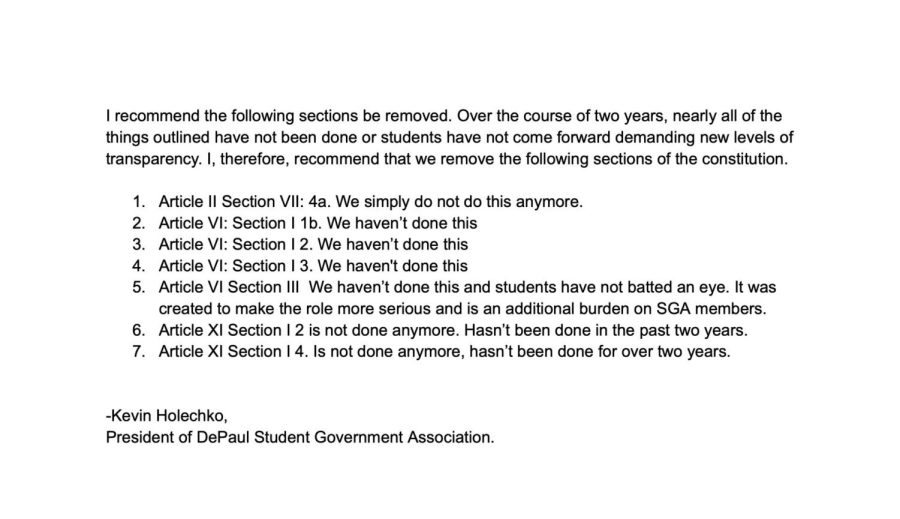


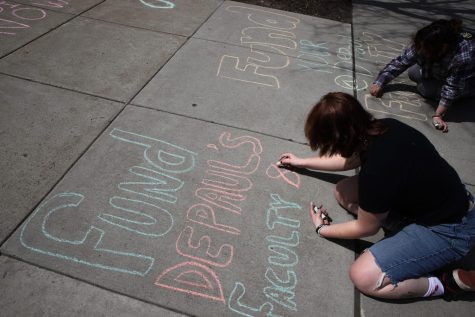
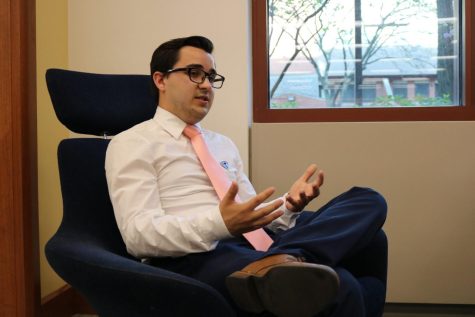


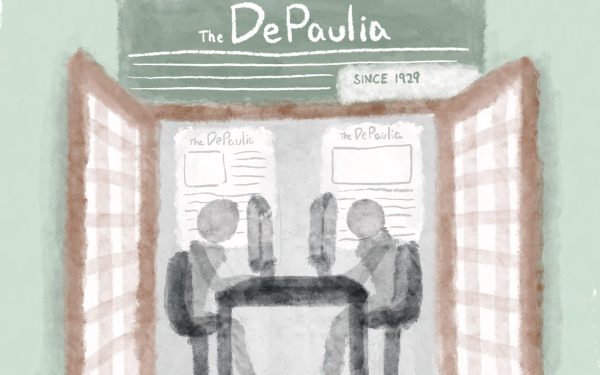



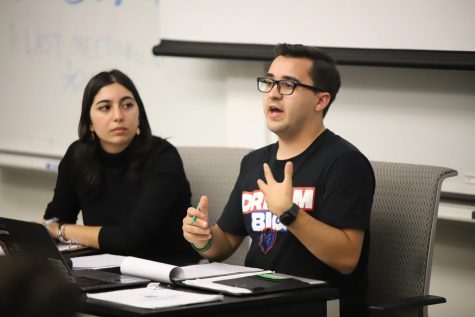
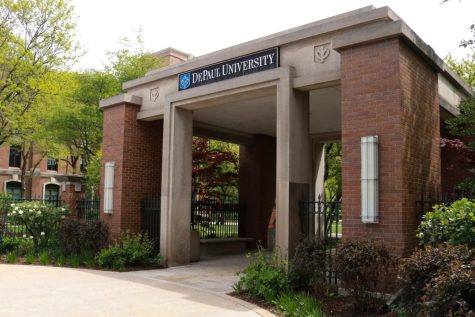



DePaul Student • May 2, 2023 at 1:25 pm
I’m a current student at DePaul and honestly haven’t heard one negative comment from my peers about the group. I’m not sure how you concluded students feel apathic “on the whole”. Anyway, do you seriously think that writing stuff like this encourages voter turnout? If you’re so inquired to find out exactly what they spend, handle it internally.
Also, please address why exactly you need the numbers on the report. What are you planning on doing with them?
Wesley Janicki • May 3, 2023 at 5:43 pm
It is good that you’ve heard nothing negative about the group, but that is just the experience of you and your peers.
As to how I come to the conclusion of general apathy, the declining voter turnout, and research around student opinions of student government at DePaul that I link in my article are just that. Apathy, to be clear, is not a negative opinion (although some do hold that opinion), it is a lack of care for what the organization is or does. The less than 5% turnout tells you all you need to know about whether students at a broad level, care or not.
I’ve never claimed writing this increases turnout, I never even intended for it to. I wrote it because I believe that SGA should be held accountable for its transparency issues. If you choose to excuse them, that is your choice, but it is not mine.
To address why I need the budget, point blank, I don’t, but it’s a matter of principle. But that’s the nature of government transparency. It’s rarely needed, until it is, and then it’s a problem when it isn’t published. Most people probably don’t read the board minutes of the municipality they live in, but there’d be a problem if those minutes weren’t published. It’s the same principle here, it’s a sign of good faith, and is a way to hold an organization accountable to what it promises to do.
DePaul Student • Apr 30, 2023 at 10:02 pm
writing op-eds for a group you haven’t been part of for 3 years. ?? side eye.
DePaul Student • Apr 30, 2023 at 9:55 pm
writing op-eds for a group you haven’t been part of for 3 years. ?? side eye.
DePaul Student • Apr 30, 2023 at 9:23 pm
“DePaul alumnus”… Get a life Wesley.
Former DePaul Student • Apr 30, 2023 at 9:55 pm
Second
Wesley Janicki • May 1, 2023 at 10:12 am
Yes, I’m a DePaul alumnus, but during my time was critically involved with SGA (only 2 years ago, contrary to other comments), it’s an organization I care about, which is why I criticize it. These issues affect students, and is intimately linked with why students on the whole feel apathetic towards SGA. It takes just an ounce of humility to realize that these failures contribute towards that apathy, and address them.
I do find it telling that you decline to disclose your name and not stick your name to an opinion, nor address anything other than that I wrote it. In fact, if you did have some criticisms, I’d be glad to address them.
DePaul Student • May 1, 2023 at 2:03 pm
Corny af. Get a job.
DPU STU • May 1, 2023 at 10:29 pm
^ You thought you ate with this op-ed & you just look like bitter and obsessed. You’re an adult.. act like it.